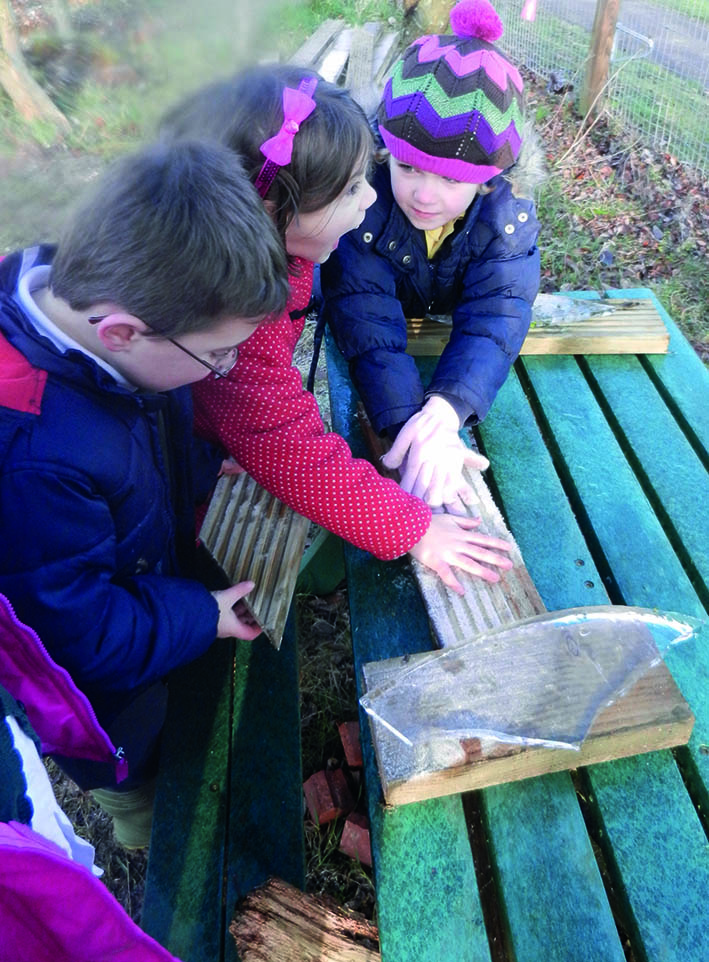
What does it mean?
Changes of state refers to when matter changes physically, e.g. a solid changes into a liquid, or a liquid to a gas. Processes such as evaporation and boiling change the state of substances.
Quick win – freezing and melting
 One morning, fill an ice cube tray with water and place it in the freezer. Go back to it every hour to examine – it usually takes around four hours for ice cubes to freeze. Once they are truly solid, remove them from the tray and place one or two on a series of five saucers. Test how quickly the ice cubes melt by pouring cold tap water on the first one, warm tap water on the next, boiling water on the third, and leaving the fourth and fifth to melt in the ambient temperature indoors and outdoors respectively. Ask children to predict what they think will happen at each stage, and why. You could repeat this experiment with much larger ‘ice cubes’ – freeze nesting hollow cups overnight. Estimate and then measure how much longer it takes the largest one to melt compared to the smallest.
One morning, fill an ice cube tray with water and place it in the freezer. Go back to it every hour to examine – it usually takes around four hours for ice cubes to freeze. Once they are truly solid, remove them from the tray and place one or two on a series of five saucers. Test how quickly the ice cubes melt by pouring cold tap water on the first one, warm tap water on the next, boiling water on the third, and leaving the fourth and fifth to melt in the ambient temperature indoors and outdoors respectively. Ask children to predict what they think will happen at each stage, and why. You could repeat this experiment with much larger ‘ice cubes’ – freeze nesting hollow cups overnight. Estimate and then measure how much longer it takes the largest one to melt compared to the smallest.
Register now to continue reading
Thank you for visiting Nursery World and making use of our archive of more than 35,000 expert features, subject guides, case studies and policy updates. Why not register today and enjoy the following great benefits:
What's included
-
Free access to 4 subscriber-only articles per month
-
Unlimited access to news and opinion
-
Email newsletter providing activity ideas, best practice and breaking news
Already have an account? Sign in here









